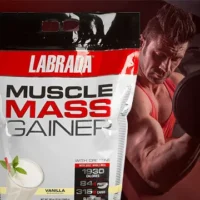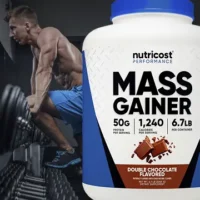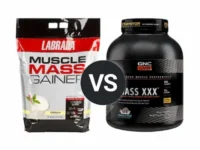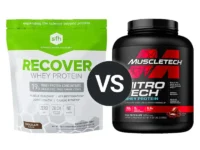Knowledge BaseYou're Questions Answered
Is creatine a protein powder? What does it do?
Creatine is not a protein powder, but rather a compound that helps supply energy to cells, particularly muscle cells. It is often used as a dietary supplement by athletes and bodybuilders to aid in muscle growth, enhance strength, and improve exercise performance.
Creatine is naturally produced in the human body from amino acids and can also be obtained through dietary sources like meat and fish. As a supplement, it is most commonly found in the form of creatine monohydrate, which is synthesized for easier consumption and absorption.
Benefits of Creatine:
- Energy Production: Creatine plays a critical role in the phosphocreatine system, which produces ATP (adenosine triphosphate), the primary energy carrier in cells. This is particularly beneficial during high-intensity, short-duration exercises such as sprinting or weight lifting1.
- Muscle Mass: Supplementing with creatine can increase the phosphocreatine stores in your muscles, enhancing the body's ability to produce ATP rapidly and sustain high-intensity muscle performance. This can lead to improved workout performance and muscle hypertrophy (growth)2.
- Speeds Recovery: Creatine has been shown to help reduce muscle damage and inflammation following strenuous exercise, speeding up the recovery process3.
- Cognitive Enhancement: Some research suggests that creatine supplementation may also benefit cognitive function, especially in situations requiring quick decision-making and problem-solving skills4.
While creatine is often associated with strength training and bodybuilding, it can be beneficial for a variety of sports and activities that require quick bursts of energy. It is one of the most extensively studied and confirmed effective sports supplements available today.
- Hultman, E., Söderlund, K., Timmons, J. A., Cederblad, G., & Greenhaff, P. L. (1996). Muscle creatine loading in men. Journal of Applied Physiology, 81(1), 232-237.
- Volek, J. S., & Rawson, E. S. (2004). Scientific basis and practical aspects of creatine supplementation for athletes. Nutrition, 20(7-8), 609-614.
- Cooke, M. B., Rybalka, E., Stathis, C. G., Cribb, P. J., & Hayes, A. (2009). Creatine supplementation enhances muscle force recovery after eccentrically-induced muscle damage in healthy individuals. Journal of the International Society of Sports Nutrition, 6, 13.
- Rawson, E. S., & Venezia, A. C. (2011). Use of creatine in the elderly and evidence for effects on cognitive function in young and old. Amino Acids, 40(5), 1349-1362.
Related Questions
Related Reviews

Your Answer
We are a participant in the Amazon Services LLC Associates Program, an affiliate advertising program designed to provide a means for us to earn fees by linking to Amazon.com and affiliated sites.






